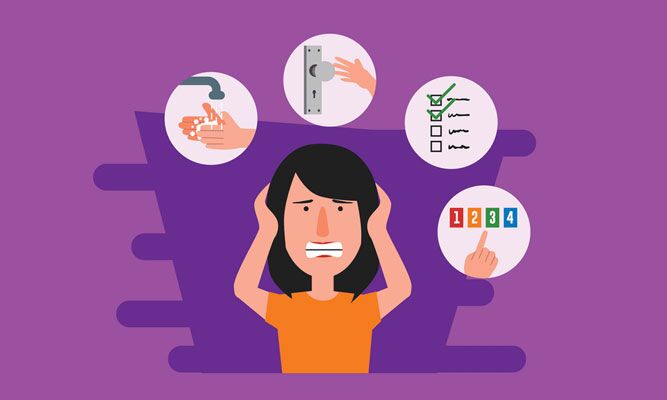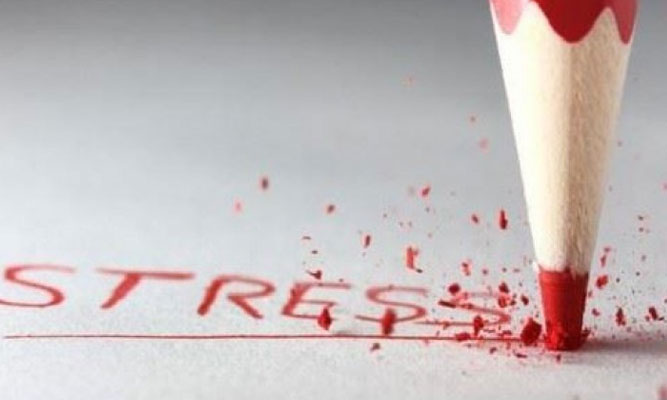The Covid-19 lockdown leads to insomnia, anxiety and stress

The Covid-19 pandemic has turned upside down in all areas of our daily life. Apart from other unpleasant consequences, it turns out that the coronavirus and the lockdown have exacerbated insomnia, anxiety and stress in a large part of the world's population.
Understandably, this whole situation we are experiencing has significantly affected all aspects of our daily lives. Social alienation - isolation, professional uncertainty for a huge percentage of the population and the fear of the effects of a possible infection from the corona virus, are just some of the problems we have to deal with at the present time. Situations that naturally increase anxiety and stress, while reducing the quality of our sleep.
Insomnia and coronavirus – What do the experts say?
There is enough scientific data according to which the pandemic period has rapidly increased insomnia rates around the world. Something that of course also happens in our country. As the experts say, an unexpected situation like this makes sense to increase anxiety and stress, factors that significantly affect the quality of sleep.
The fear of someone contracting the virus, or of inadvertently transmitting it to their family, combined with the social and economic consequences of the pandemic, is capable of increasing anxiety levels and causing symptoms of insomnia. In fact, in a situation like the one we are experiencing at the present time with Covid-19, it is logical that these fears increase even more. A hitherto unknown virus which has claimed the lives of several people and causes great uncertainty for tomorrow.
However, the implementation of the lockdown measures will make these data even worse, since in addition to the fear of the virus, it has led to many more serious problems. Closure of many businesses, increase in unemployment, isolation of people and many more. Situations that are logical to affect psychology and consequently sleep.
Who are affected by insomnia due to lockdown?
UCLA Sleep Disorders Center director Dr. Alon Avidan, with his publication in the newspaper The Washington Post, typically states that the insomnia and anxiety problems caused by the lockdown and the coronavirus pandemic in general, do not only concern young sufferers. Certainly the number of people who did not face any problem until now is increasing, but the problem is even more common in people who were already facing insomnia and anxiety problems before.
Additionally, patients who used to deal with problems with nightmares are even more difficult at the present time. Data, which he characteristically mentions, lead to a "pandemic of sleep problems".

How to deal with stress and insomnia naturally
Treating insomnia has been proven to help fight anxiety and stress. Healthy and normal sleep helps both physical energy and mental health of a person. In fact, we should not neglect the improvement of the immune system, something necessary in the fight against the Covid-19 pandemic.
So if you are experiencing insomnia at the present time, it would be good to follow a program that will contribute to improving your sleep. In particular, it would be good to be exposed to bright light during the day and avoid bright blue lights at night. Additionally, it would be good to avoid smoking, drinking alcohol and using electronic devices before going to bed. Leave a relaxation period where you can take a relaxing bath and listen to music.
For mild and transient symptoms of anxiety and insomnia you can also try some natural products for anxiety and sleep disorder.
Some natural ingredients that help with stress, anxiety and insomnia are:
Valeriana: A plant known since ancient times for its relaxing effect, it contributes positively to the onset of sleep. It has a mild sedative effect and helps fight problems arising from anxiety such as cramps, tremors, overexertion & nervousness.
Passionflower: It has antispasmodic properties and is used in botany against insomnia due to stress and overexertion and in general as a sedative for the nervous system.
Melatonin: Promotes restful sleep and helps reduce the time it takes the body to fall asleep. Melatonin also helps relieve the subjective feeling of jet lag.
Complex of Vitamins B and Magnesium:
They reduce tiredness and fatigue while at the same time charging the body with the energy it needs as these nutrients contribute to the normal functioning of metabolic processes aimed at energy production. They also contribute to the smooth functioning of the nervous system and normal psychological function. In particular, Vitamin B5 contributes to normal mental performance, while Vitamin B6 helps regulate hormonal activity.
Rhodiola: A plant known as the "golden" root, which for many years has been used to improve stamina and mood. Thanks to its adaptogenic properties, rhodiola helps the body to adapt to any living condition, while according to studies it enhances mental performance.
Tryptophan:
Amino acid essential for the body, which according to studies offers a positive effect on mood and improves the quality of sleep.
Finally, it is important not to hesitate to consult a specialist if the difficulties in sleeping exceed the period of 2 weeks. Chronic lack of sleep reduces cognitive functions such as the ability to pay attention, concentrate and understand, causes irritability, reduces performance at work, can cause muscle pains and headaches, reducing your overall quality of life.
- 185 Pelopida, Peristeri 12137 Athens
- 2105738672
- Mon - Fri 08:30-14:30 & 17:30 - 20:30
Sat 10:00 - 14:30 - info@pharmacy4cure.gr
- Contact form
- Open on map

